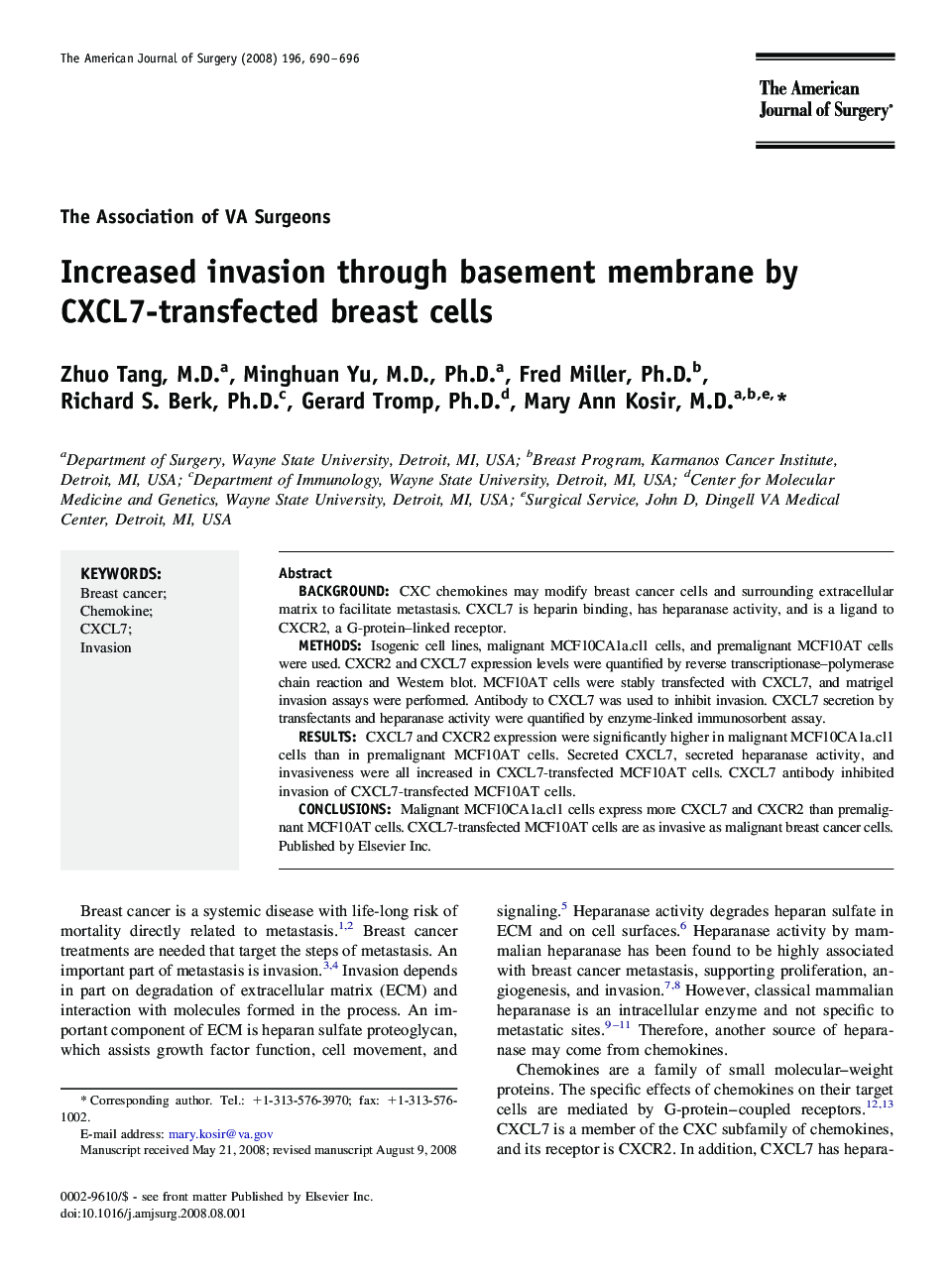| Article ID | Journal | Published Year | Pages | File Type |
|---|---|---|---|---|
| 4281395 | The American Journal of Surgery | 2008 | 7 Pages |
BackgroundCXC chemokines may modify breast cancer cells and surrounding extracellular matrix to facilitate metastasis. CXCL7 is heparin binding, has heparanase activity, and is a ligand to CXCR2, a G-protein–linked receptor.MethodsIsogenic cell lines, malignant MCF10CA1a.cl1 cells, and premalignant MCF10AT cells were used. CXCR2 and CXCL7 expression levels were quantified by reverse transcriptionase–polymerase chain reaction and Western blot. MCF10AT cells were stably transfected with CXCL7, and matrigel invasion assays were performed. Antibody to CXCL7 was used to inhibit invasion. CXCL7 secretion by transfectants and heparanase activity were quantified by enzyme-linked immunosorbent assay.ResultsCXCL7 and CXCR2 expression were significantly higher in malignant MCF10CA1a.cl1 cells than in premalignant MCF10AT cells. Secreted CXCL7, secreted heparanase activity, and invasiveness were all increased in CXCL7-transfected MCF10AT cells. CXCL7 antibody inhibited invasion of CXCL7-transfected MCF10AT cells.ConclusionsMalignant MCF10CA1a.cl1 cells express more CXCL7 and CXCR2 than premalignant MCF10AT cells. CXCL7-transfected MCF10AT cells are as invasive as malignant breast cancer cells.
